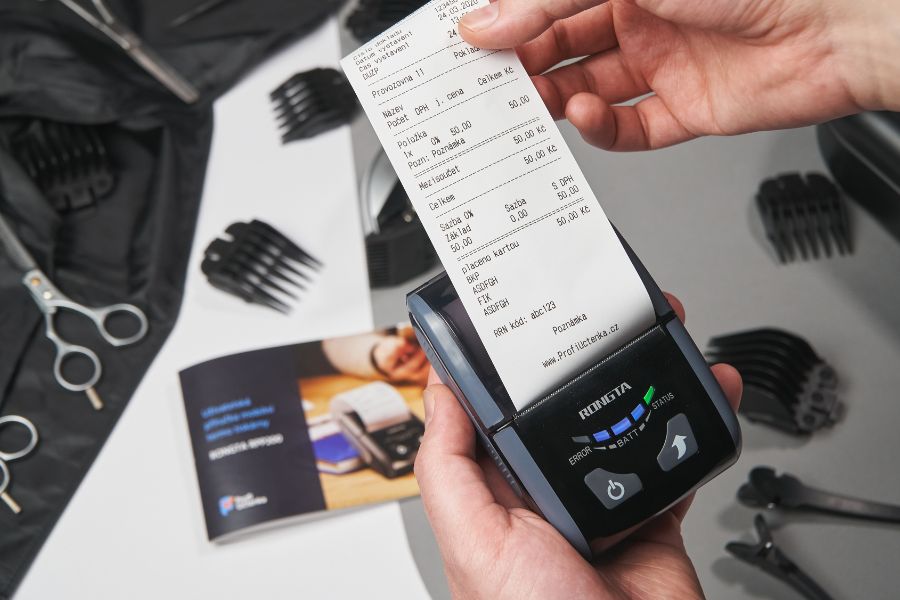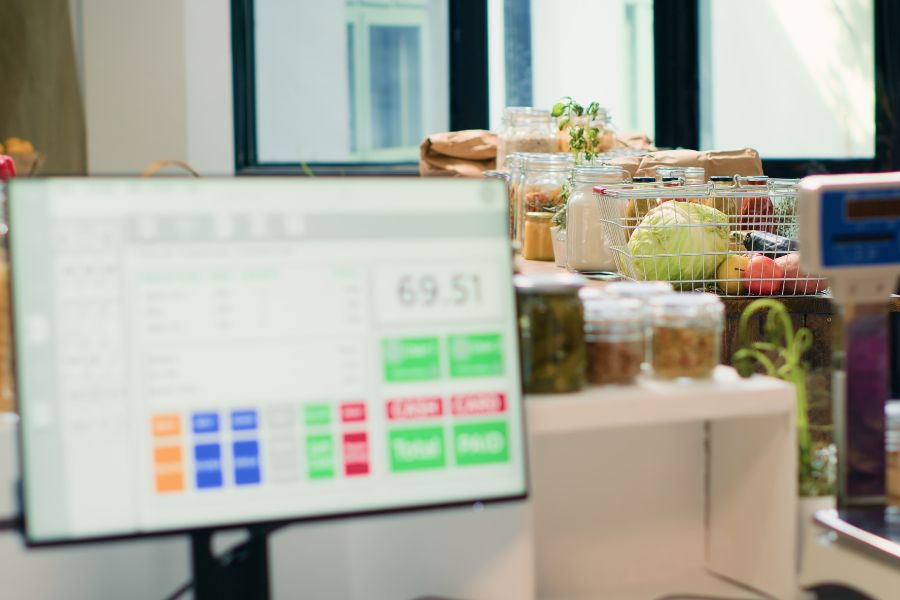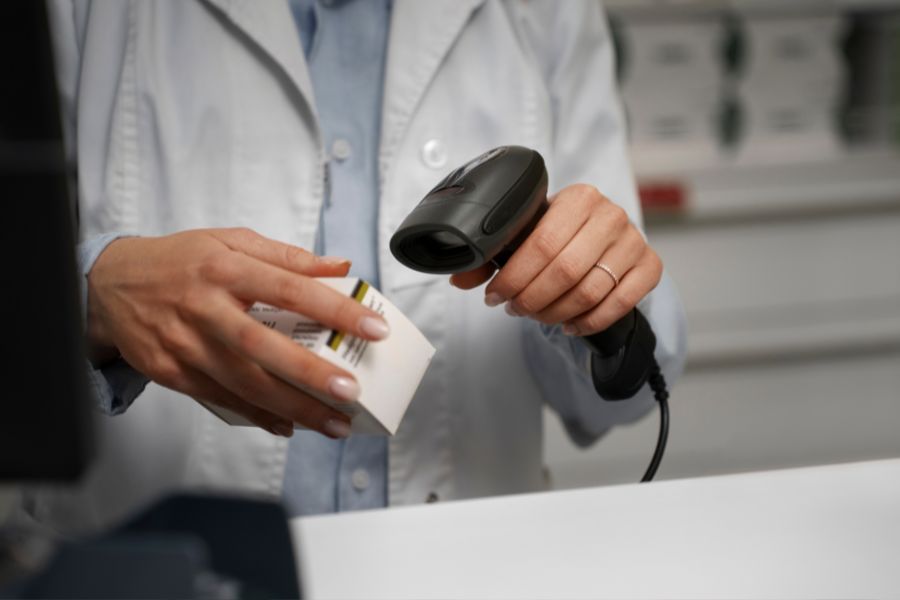Imagine you’re running a thriving ecommerce business. Orders are pouring in, and your products are a hit -but behind the scenes, keeping up with real-time inventory, managing sales from multiple channels, and tracking customer insights feel overwhelming.
This scenario is all too familiar for growing businesses. While basic systems may suffice at the start, scaling up often demands more robust solutions. That’s where comprehensive POS systems for ecommerce come into play. These tools streamline operations, unify processes, and help businesses tackle challenges as they grow. In this article, we will explore the top five comprehensive POS systems designed to solve the challenges ecommerce store owners face.
Highlights:
- A comprehensive POS system for eCommerce businesses solve the issues of fragmented sales processes, inventory mismanagement, and uncoordinated customer experiences as they scale.
- What sets a comprehensive POS system apart from standard ones is its ability to integrate omnichannel operations, offer real-time inventory updates, and provide advanced analytics and CRM tools, enabling seamless scalability and superior customer experiences.
What Makes a POS System Comprehensive?
Recent studies show that around 2.71 billion consumers will shop online in 2024, highlighting the importance of having a comprehensive POS system for ecommerce stores.

Such a system integrates various functionalities that help manage sales, inventory, and customer relations effectively.
A robust POS system for ecommerce must have these features:
- Omnichannel Integration: The system should connect different sales channels, creating a consistent experience for customers both online and in-store. This synchronization makes it easy to update inventory, track customer data, and manage orders across all platforms. Businesses benefit from managing everything in one place, reducing the chances of mistakes and improving operational flow.
- Inventory management: It is at the core of a good POS system. The system tracks stock levels, automatically adjusting based on sales activity. It helps prevent the issue of overselling by providing real-time updates and alerts when it’s time to reorder products. This capability ensures that businesses can keep stock levels balanced and maintain an uninterrupted sales process.
- Customer Relationship Management (POS CRM): Managing customer relationships is another important component. The system stores details like purchase history and preferences, helping businesses create tailored experiences. It supports loyalty programs that reward repeat customers, which increases the likelihood of retaining business. Being able to target specific customers with personalized offers increases sales and deepens engagement.
- Payment processing: These capabilities must support various methods, from credit cards to mobile payments. This adaptability gives customers the freedom to choose how they pay, without complicating the checkout process. Ensuring data is kept secure during transactions is important to build trust and comply with industry standards.
- Order Management: A centralized order management system simplifies tracking, processing, and fulfilling orders. It keeps everything in one place and reduces confusion, making it easier to handle returns, exchanges, and shipping status updates.
- Sales Analytics and Reporting: With the right reporting tools, businesses gain insights into their sales performance, customer behavior, and product trends. Reports are available to highlight which products are doing well and where to adjust pricing or stock levels. This data also aids in forecasting, allowing businesses to plan for peak seasons or adjust marketing efforts based on trends.
- User-Friendly Interface: The user interface should be easy to use, allowing employees to quickly process transactions, check stock, and interact with customers. A clean and simple layout ensures smooth operations and helps staff focus on customer service. The interface should adapt to the specific needs of the business, whether it’s a small shop or a large retail operation.
- Security Features: In 2022, SecurityMetrics reported an average of 2.44 issues per Shopping Cart Inspect review. A reliable POS system safeguards transaction data and restricts unauthorized access with encryption and role-based access controls. These measures help businesses meet legal obligations and uphold customer trust.
- Mobile Compatibility: Mobile POS functionality enables sales transactions to happen anywhere, whether in the store or at special events. It allows staff to assist customers with purchases on the floor, speeding up the buying process and providing flexibility for pop-up shops or seasonal sales.
- Integration with Other Business Tools: Integration of POS system for ecommerce with other tools like accounting software or marketing platforms helps tie together business operations. Syncing data from the POS with other systems saves time and prevents manual errors. For example, accounting software automatically updates when a sale occurs, allowing businesses to focus on growing their operations rather than managing finances.
- Scalability: Scalability is important for businesses that plan to grow. The system should support expansion by adding new features or handling more transactions as the business grows. Being cloud-based makes it easier for business owners to access data and manage operations from anywhere.
Top 5 comprehensive POS system for ecommerce store you should consider
ConnectPOS
ConnectPOS offers an all-encompassing solution designed to streamline operations for eCommerce stores, providing versatile features that suit businesses across various industries.
ConnectPOS’s mobile capabilities allow businesses to process sales anywhere, making it perfect for pop-up shops or sales at events. Whether in-store or on the go, it offers flexibility and mobility.
From managing orders and shipments to processing returns, ConnectPOS’s order fulfillment system streamlines the entire process, keeping things efficient and organized.
With the ability to tailor workflows, user interfaces, and reports, ConnectPOS adapts to the specific needs of your business. Customization ensures that the system fits seamlessly into your operations.
Customer Relationship Management (CRM)
Built-in CRM features enable businesses to track customer profiles, preferences, and purchase histories, paving the way for more personalized marketing campaigns and targeted offers.
CX Solution for Enhanced Experience
ConnectPOS includes a CX (Customer Experience) solution to streamline checkout and recommend personalized products. This improvement enhances the shopping experience, encouraging repeat visits.
Its loyalty program helps businesses retain customers by rewarding frequent buyers, ultimately boosting customer loyalty and driving repeat sales.
Customers can independently place orders, pay, and customize products at self-service kiosks, reducing staff workload and speeding up transaction times.
Seamless Integration
ConnectPOS integrates effortlessly with leading eCommerce platforms like Shopify, Magento, and BigCommerce. This ensures synchronization between online and offline sales, simplifying inventory management and order tracking.
Advanced Reporting and Analytics
Gain actionable insights with ConnectPOS’s robust reporting and analytics features. Businesses can track sales trends, customer behaviors, and inventory performance to inform decisions and fine-tune strategies.
Square
Square POS is widely recognized for its simplicity and affordability, making it a popular choice for small to medium-sized businesses. This system integrates smoothly with Square’s payment gateway and provides a range of features to streamline retail operations.
- Features: Square includes tools for managing inventory, customer data, and sales, along with various hardware options like registers, terminals, and mobile devices. Its modular structure allows businesses to add functions like employee management and advanced reporting as needed.
- Pricing: Square offers a free basic plan, with advanced options available under the Square for Retail Plus plan at $60 per month. Transaction fees are applied at 2.6% + $0.10 per swipe.
Square’s flexibility and intuitive interface make it an ideal choice for businesses seeking an affordable and easy-to-use POS system.
Clover
Clover POS offers robust customization for both hardware and software, catering to diverse business needs. Its seamless integration with platforms like Shopify and WooCommerce makes it particularly appealing for businesses that combine physical and online retail.
- Features: The system supports customer loyalty programs, mobile POS, and detailed reporting, offering flexibility for different business models.
- Pricing: Pricing for Clover depends on the hardware and software configuration. The Clover Flex starts at $9.95 per month, while more comprehensive setups like the Clover Station or Clover Mini include hardware costs ranging from $649 to $1,349, with additional monthly fees starting at $14.95. Transaction fees are approximately 2.6% + $0.10 per transaction.
Clover is well-suited for businesses looking for a highly customizable POS system with seamless ecommerce integration.
Shopify POS
Shopify POS is a natural choice for businesses already using Shopify for their online stores, providing a unified platform to manage both in-person and ecommerce operations.
- Features: This POS system allows centralized management of sales, inventory, and customer data. Additional functionality can be added through third-party apps, which may involve extra costs. Shopify also offers user-friendly hardware options like card readers and receipt printers, starting at $29.
- Pricing: The Shopify POS system is included with Shopify subscriptions, starting at $39 per month for the Basic plan, $105 per month for the Shopify plan, and $399 per month for the Advanced plan.
Shopify POS is perfect for businesses looking for seamless integration between their online and physical retail operations.
Lightspeed Retail
Lightspeed Retail is a cloud-based POS system designed for businesses in specialized industries such as fashion, beauty, and sporting goods. Its advanced features and multi-location support make it ideal for growing retailers.
- Features: The system provides tools for advanced inventory management, customer relationship management, and detailed analytics. It also integrates with popular ecommerce platforms like Shopify and Magento.
- Pricing: Lightspeed Retail’s pricing begins at $69 per month for the Basic Plan, $99 per month for the Standard Plan, and $169 per month for the Advanced Plan. Hardware costs are not included and vary depending on the business’s requirements.
With its powerful inventory tools and industry-specific features, Lightspeed Retail is a strong choice for niche markets.
FAQs: POS System for Ecommerce
- Can I use these POS systems for both online and in-store sales?
Yes, these comprehensive POS systems are designed to handle both online and in-store sales. They provide flexibility for businesses that operate both in physical locations and online, ensuring a unified system for managing transactions, inventory, and customer data.
- Are these POS systems customizable to suit my business needs?
Many POS systems, including ConnectPOS and Lightspeed, offer customization options to tailor the system to specific business requirements. You can adjust workflows, modify user interfaces, and create custom reports to suit your business model and industry.
- Can I manage customer relationships directly through the POS system for ecommerce?
Yes, most of the comprehensive POS systems come with CRM capabilities that allow businesses to track customer profiles, purchase history, and preferences. This helps in personalizing marketing efforts, improving customer service, and boosting retention.
Conclusion
A robust POS system for ecommerce is more than just a problem solver, it’s a catalyst for growth. It minimizes operational headaches like missed sales or inventory issues, allowing you to focus on delivering outstanding customer experiences. With the right tools, you can monitor customer needs in real time, streamline workflows, and create a seamless shopping journey that keeps customers coming back.
Ready to take your ecommerce business to the next level? With ConnectPOS, you can simplify your sales processes, enhance customer experiences, and streamline your operations, an all in one powerful solution. Don’t let fragmented systems hold you back. Take control today and watch your business thrive. Contact us now!



